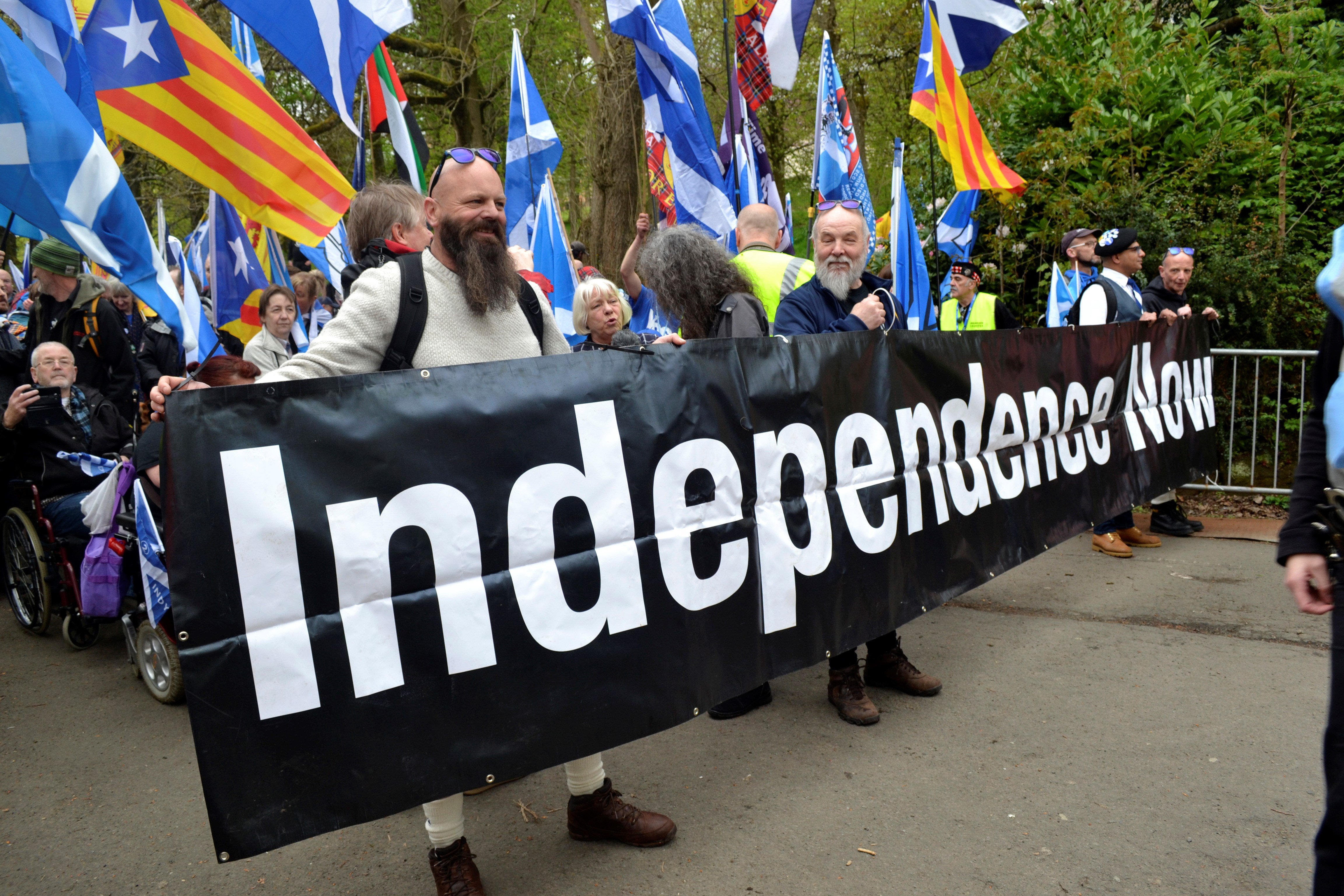Can Scotland legally vote in a second self-determination referendum without the endorsement of the Westminster parliament? This is what the Supreme Court of the United Kingdom will decide this Wednesday, after Edinburgh took the question to the courts in its quest to find a way forward towards independence in the face of the repeated refusals from Whitehall, from the Conservatives and now also from Labour, to agree to a binding consultation like that of 2014. The decision of the UK's highest court for constitutional cases comes sooner than initially expected. The judges, who had warned that it would take months to analyze the 8,000 pages of documents and consider the two hearings held in October, have in the end only needed about six weeks to reach their conclusion, which they will make public around 10am on Wednesday in the UK, 9am in most of Europe. Indeed, this unexpected speed has raised suspicions among constitutional law experts of the possibility that the court will not position itself in favour of one option or the other, since the Scottish Independence Referendum Bill has not yet been passed by the Scottish Parliament.
Due to the particular juridical situation of the United Kingdom - specifically, that it has an unwritten Constitution - the Supreme Court will have to decide whether it is legal for the Scottish Parliament at Holyrood to call a referendum without the permission of the British Parliament. In practice, this means that the judges must take a position on who really holds sovereignty, despite the fact that membership of the Union is "voluntary". On the other hand, the first minister of Scotland, Nicola Sturgeon, has also received criticism for the arguments that her government has used before the Supreme Court to try to win the case. Nevertheless, she assures that she has a plan B in the event that her government's argument is not upheld: specifically, for the next general election to be a de facto referendum.
What is the Scottish government's argument?
First minister Sturgeon is awaiting the Supreme Court's decision to find out if she has the power to go ahead with the referendum law. According to the Scottish government, Sturgeon has the power to hold a "purely consultative" referendum in October next year, for which she does not need the endorsement of Westminster, the seat of parliamentary sovereignty according to the country's constitutional tradition. Thus, with the idea that the consultation is not really binding, the leader hopes to avoid Whitehall's roadblock and be able to put out the ballot boxes on October 19th, 2023. If the Supreme Court rules in favour of the Scottish government this Wednesday, Sturgeon will immediately present the referendum law to MPs for their approval. However, once the consultation is held, under this scenario, both Holyrood and Westminster would still have to pass legislation to make independence effective. That is why some on the pro-independence side have doubts about this strategy, which, in the end, would still need agreement from London. Similarly, there are doubts over whether the next general election could really be used as a de facto self-determination referendum.
Furthermore, if the recent tumbling popularity of Britain's Tory government has seemed to raise another scenario - that of a UK election which might place the final decision on Scotland's indyref2 in the hands of the Labour Party - leader Keir Starmer put paid to any hopes the Scots might have had for an easier ride under a new UK government. In a recent interview with the BBC, the Labour leader said that, while awaiting the court's judgement, he could already say that he was not prepared to back a new Scottish vote on self-determination.
And if the Supreme Court doesn't say that anyone is right?
There is a possibility that the Supreme Court will rule on Wednesday that it is too early to take a position on the issue. This is because Holyrood has not yet passed the Bill, and therefore it may be argued that they cannot rule on a procedure that has not yet started. With respect to this, it seems that the British government would be comfortable waiting for the Scottish Parliament to approve the law, and then taking it back to the Supreme Court to make the argument that they do not have the competence to hold a new vote.
Whichever way the decision goes, pro-independence Scots and their supporters plan to take to the streets around Europe on Wednesday afternoon. A total of 16 demonstrations are planned to mark the "Day of Judgement", eleven in Scotland itself and five on the continent, in Paris, Brussels, Rome, Berlin and Munich. "This verdict is relevant for all Europeans that care about democracy," say organizers Europe for Scotland.
On Wednesday, UK Supreme Court will announce whether Scotland can legally hold #indyref2. This verdict is relevant for all Europeans that care about democracy. That's why we will stand in solidarity with our Scottish friends on the day of judgement. #SupremeCourt #timeforscotland pic.twitter.com/pk7UQxSe94
— Europe for Scotland (@ScotlandEurope) November 17, 2022

